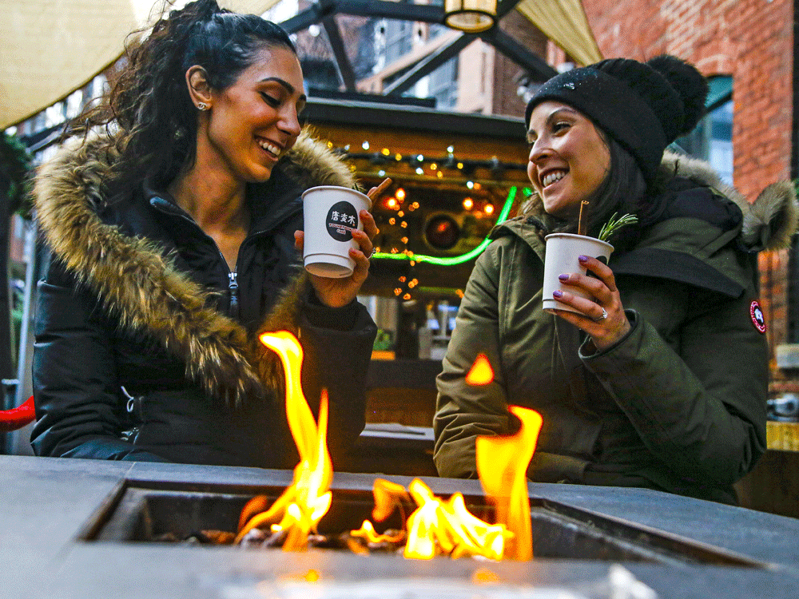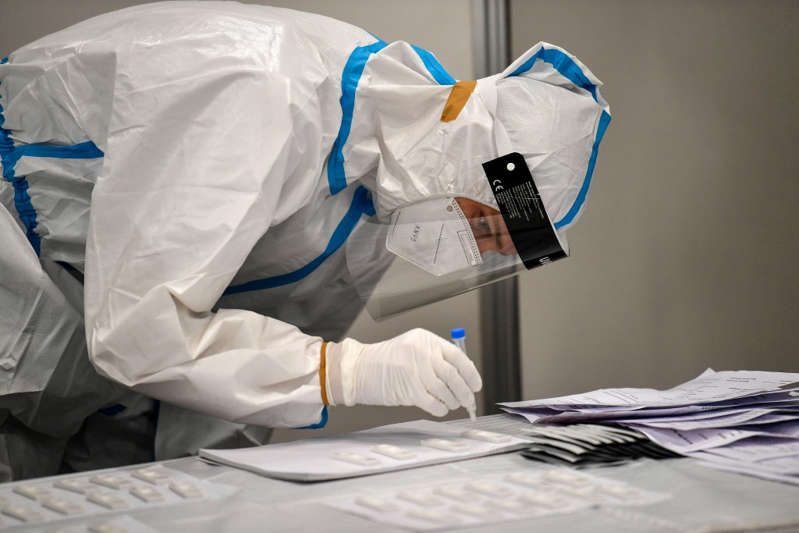Christmas is coming, but pandemic restrictions might make holiday merrymaking a little difficult.
Some provinces still have restrictions limiting in-person, indoor gatherings to those within the same household, or limiting the ability of the unvaccinated to gather inside.
Many of the rules were put in place during the third wave and remain in effect. Absent any changes over the next three weeks, many Canadians will be facing reduced Christmas parties, perhaps just with their direct households and a few others.
The range is significant — some provinces have no restrictions on gatherings, others are heavily limited. In some jurisdictions, those who are unvaccinated quite simply will not be able to gather with anyone beyond the people they live with.
However, restrictions could still be lifted, or strengthened, depending on that happens with the new Omicron variant and hospitalization rates across the country.
So, the question is, depending where you live, will Christmas 2021 be stolen? Here’s what we know right now.
BRITISH COLUMBIA
British Columbia has no restrictions on indoor or outdoor personal gatherings, but certain health regions in the province — areas with lower vaccination rates — do have rules around gatherings.
Within certain parts of the Fraser Health region — including Abbotsford, Hope and Chilliwack — the vaccinated face no restrictions on get-togethers.
But those who are unvaccinated may only have their own household, plus five visitors, or one other household, at a personal gathering. If they do Christmas outdoors, though, they are allowed 10 visitors — but they must remain outdoors.
- What does Omicron mean for Canada’s vaccinated majority?
- Do we dare hope COVID-19 is becoming milder with Omicron?
In the northern region of the province, restrictions are broken down by municipality. In some, there are no rules. In others, where restrictions brought in on Oct. 14 apply, all people 12 and older must be fully vaccinated in order to have personal gatherings, and those are limited to five visitors or one other household.
People must also wear masks and physically distance.
Those who aren’t vaccinated cannot have gatherings outside their household.
“This holiday season, we once again advise people to take steps that can help them stay safe. Being fully vaccinated is the most important measure that anyone can take,” the province said in a statement.
ALBERTA
During the third wave, Alberta brought back a number of restrictions. Premier Jason Kenney has hinted that they could be eased for Christmas, if pressure on intensive-care units decline.
But, as it stands, the rules in place across the province could cramp Albertans’ Christmas style.
The unvaccinated are not allowed to attend private gatherings with those beyond their own household.
The vaccinated, if they’re having gatherings at a private residence, are limited to two households — the hosting house plus one visiting home — to a maximum of 10 vaccinated people. There aren’t any restrictions that apply to kids under 12.
But, if winter holds off in Alberta, up to 20 people could gather outdoors for turkey and stuffing, vaccinated or not.
SASKATCHEWAN
“Share seasonal greetings and not COVID-19,” says a Saskatchewan news release .
There are no rules surrounding private gatherings in Saskatchewan, but, it does suggest that gatherings be kept small, and a list of attendees be made to assist in contact tracing.
The province also advises mask-wearing and social distancing if there are unvaccinated, partially vaccinated or status unknown people in attendance.
MANITOBA
There are lines drawn around the vaccinated and unvaccinated when it comes to gathering at a private residence indoors in Manitoba.
If everyone present is vaccinated, then there are no capacity restrictions.
But, the rules change if the unvaccinated are present.
A mite confusingly, Manitoba says: “Households are limited to guests from one other household when any unvaccinated person (who is eligible to be vaccinated) is present on the property (even if the unvaccinated person lives at that location).”
In other words, a full house at Christmas means everyone’s got to get their jabs.
ONTARIO
Canada’s largest province has a whole section of its website dedicated to safe merrymaking.
“These events and gatherings have the potential to increase the risk of COVID-19 transmission, especially for those who are at high-risk of severe disease and/or exposure to COVID-19,” the website warns.
For indoor gatherings — “such as a gift exchange or holiday party” — the limit is 25 people, and Ontario suggests that masking and physical distancing be observed if there are unvaccinated people present, or if the vaccination status of some present is unknown.
Ontario also suggests keeping a list of those present, to assist with contact tracing, should there be an outbreak amongst guests, and says that anyone who is not feeling well should stay home; those who are immunocompromised, the government suggests, may want to consider attending virtually.
QUEBEC
Quebec allows for a maximum of 10 people from different addresses to gather indoors, or, the occupants of three different households.
For Christmas purposes, that means you get to choose which of the aunts and uncles you want to have come over.
The province’s website makes no distinctions between the vaccinated and unvaccinated, although it suggests those “who do not have adequate protection ” against COVID-19 — the unvaccinated, or those who’ve had COVID, but not within six months — should wear masks if people are coming within one metre of one another.
ATLANTIC CANADA
Throughout the pandemic, Atlantic Canada has been famously strict with its rules, including slamming shut borders and heavily restricting access to outsiders to create a “bubble” around eastern Canada.
Nova Scotia allows up to 25 people indoors. Fifty, if you’re outdoors. There does not need to be masking or social distancing for informal gatherings. But, Nova Scotia retains some self-isolation requirements for those who are unvaccinated, which means travel could be an issue.
New Brunswick will let you have a big Christmas. The rules allow for one household, plus 20 “consistent” contacts. But, there are travel restrictions and you have to register with the government before entering the province.
Prince Edward Island , which has yet to register a single death from COVID-19 over the course of the pandemic, allows gatherings of up to 50 people, according to its website . “Proof-of-vaccination is not required for personal gatherings,” the website notes. But there are strict isolation requirements for the unvaccinated.
Technically speaking, gathering restrictions in Newfoundland and Labrador are set by how many people can fit into a room while maintaining physical distancing from one another. The province, which, like the others, also maintains travel restrictions, says they should be capped at 25 people.
“Remember that smaller gatherings have a lower risk of transmission of COVID-19,” the government says.
THE NORTH
The North has also had fairly stringent restrictions, especially when it comes to entering the territories.
In the Yukon , 10 people, from a maximum of two households, may gather — so long as everyone is vaccinated. Those who are unvaccinated may socialize only with those of their own household.
In the Northwest Territories , up to five visitors — up to a total of 10 people altogether — may gather, if there is a mix of the vaccinated and unvaccinated. But, if all visitors and household members (those under 12 excluded) are vaccinated, then up to 25 people may gather together. The Northwest Territories have also maintained a ban on leisure travel , with some exceptions.
In Nunavut , indoor gatherings at a home are allowed for up to 15 people, plus the hosting household. The exception is Pond Inlet, where the rule is 10 plus the household. Nunavut, as well, maintains travel restrictions and quarantine rules for those returning or coming from out of province.








